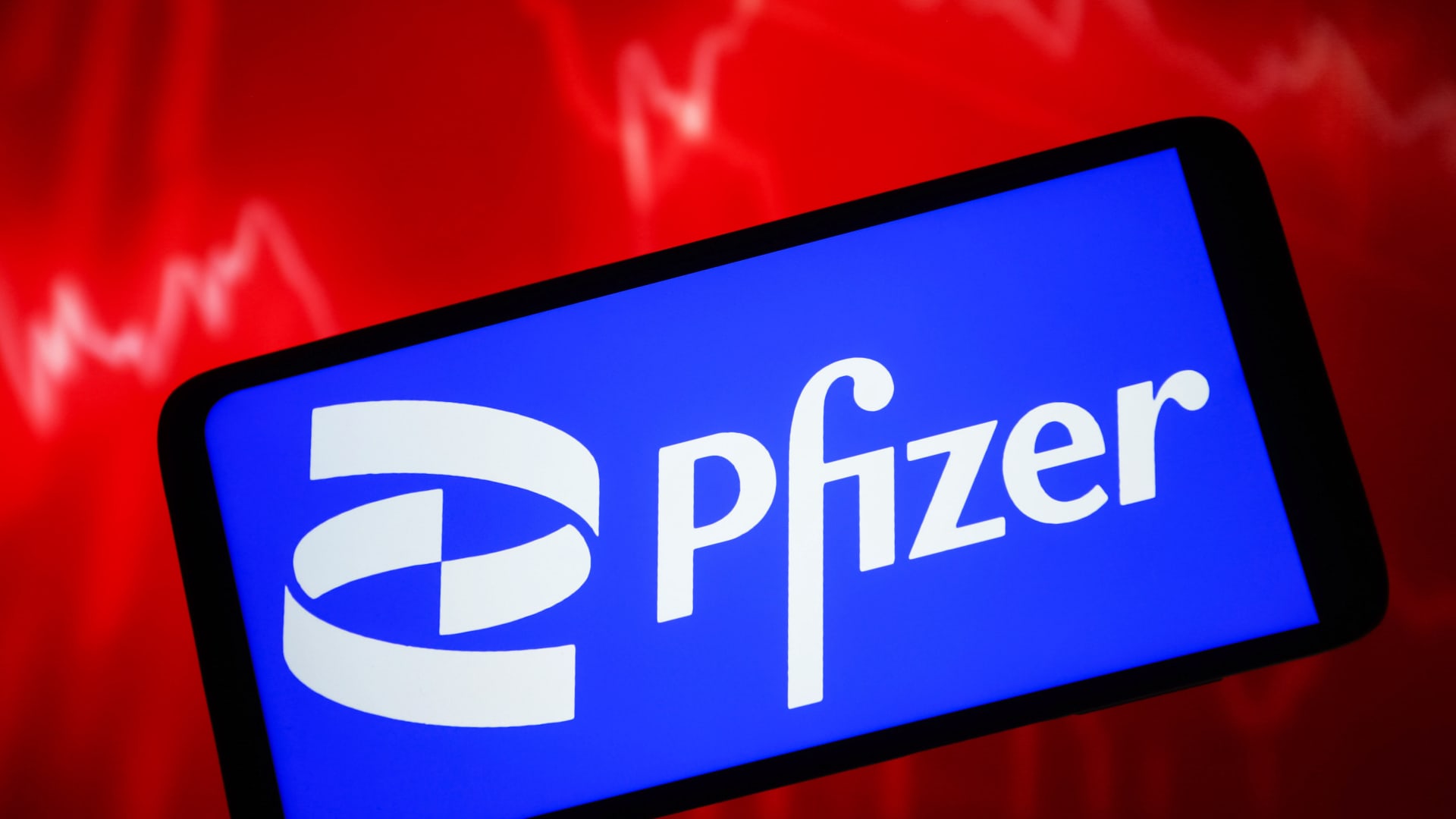Pfizer on Monday said it would stop developing its experimental obesity and diabetes pill, lotiglipron, due to elevated liver enzymes in patients who took the drug once a day in mid-stage clinical studies.
Those elevated enzymes often indicate damage to cells in the liver, but the pharmaceutical giant said no patients experienced liver-related symptoms or side effects.
Shares of Pfizer were down about 3.5% in premarket trading following the news.
New York-based Pfizer said it will instead focus on its other oral obesity drug, danuglipron, which is in a fully enrolled phase two clinical trial.
That study found that body weight was reduced after patients with Type 2 diabetes took high-dose versions of danuglipron twice a day for 16 weeks, according to results Pfizer released last month.
The company expects to finalize plans for phase three clinical trial program on danuglipron by the end of 2023. Pfizer added that it is also developing a version of danuglipron that patients take once a day instead of twice.
“We look forward to analyzing the danuglipron Phase 2 results and selecting the dose and titration schedule that will maximize the therapeutic benefit and safety and tolerability,” William Sessa, Pfizer’s chief scientific officer of internal medicine, said in a press release.
Lotiglipron, danuglipron and Novo Nordisk‘s blockbuster weight loss injections Ozempic and Wegovy are part of a class of drugs called glucagon-like peptide-1 agonists.
They mimic a hormone produced in the gut called GLP-1, which signals to the brain when a person is full.
The drugs can also help people manage Type 2 diabetes because they encourage insulin release from the pancreas, lowering blood sugar levels.
Oral drugs like Pfizer’s danuglipron could offer an advantage over frequent injections. Novo Nordisk and Eli Lilly are also developing their own experimental obesity and diabetes pills.
The new class of obesity drugs is piquing public interest and causing a weight loss industry gold rush. But there’s still uncertainty about their accessibility, and questions remain about how long patients would need to take the drugs to keep unwanted weight off.
Some people who stop taking the drugs complain about a weight rebound that is difficult to control.
More than 2 in 5 adults have obesity, according to the National Institutes of Health. About 1 in 11 adults have severe obesity.

